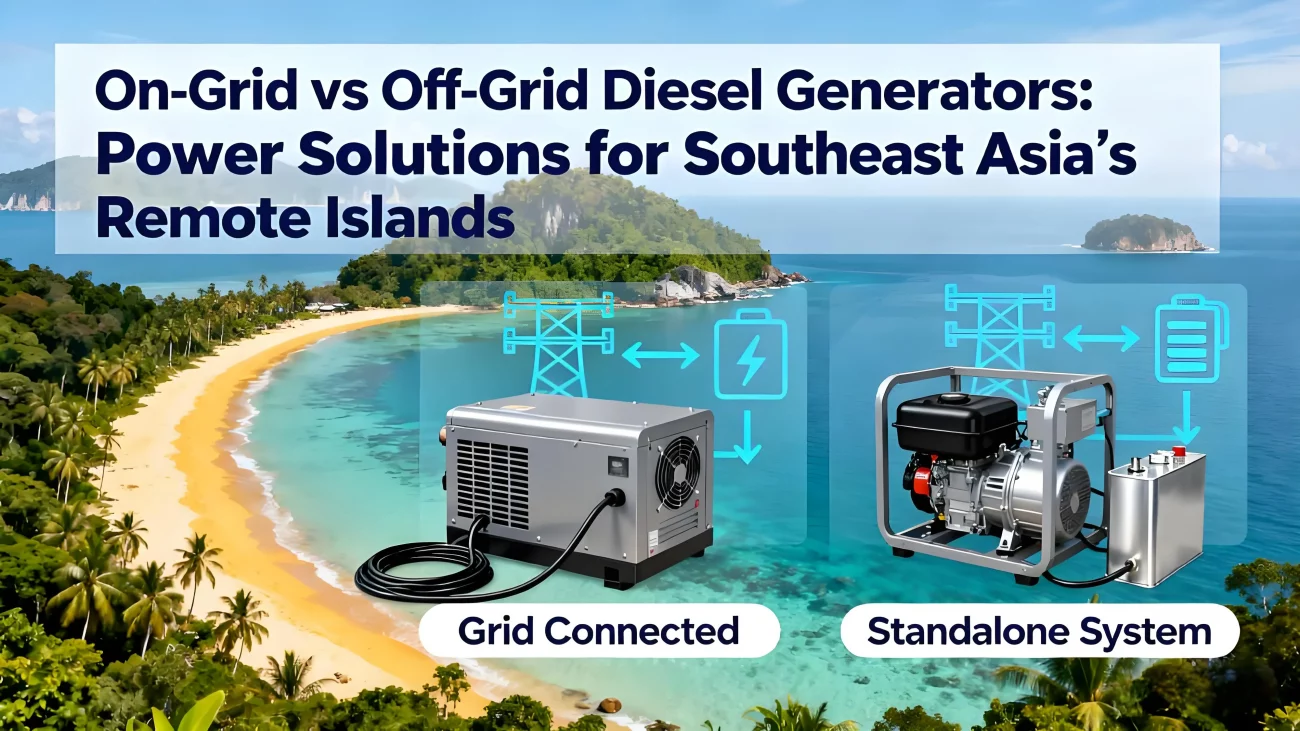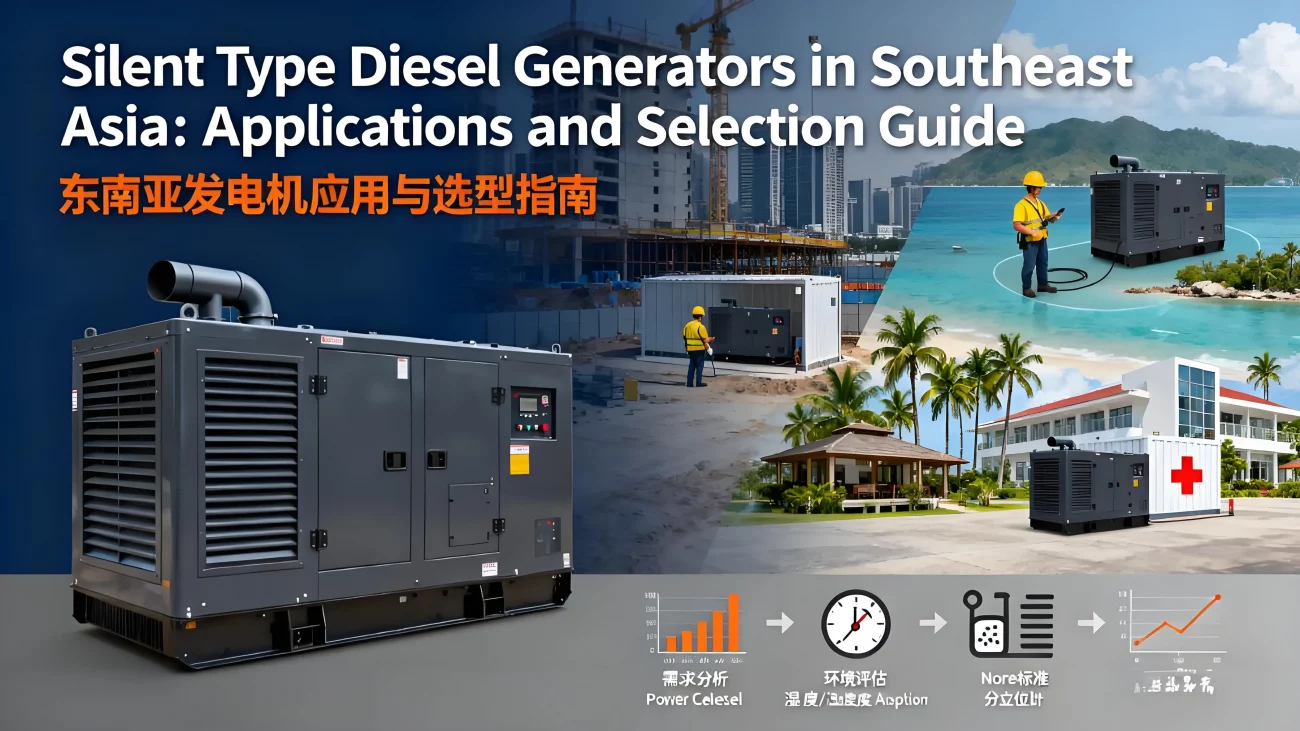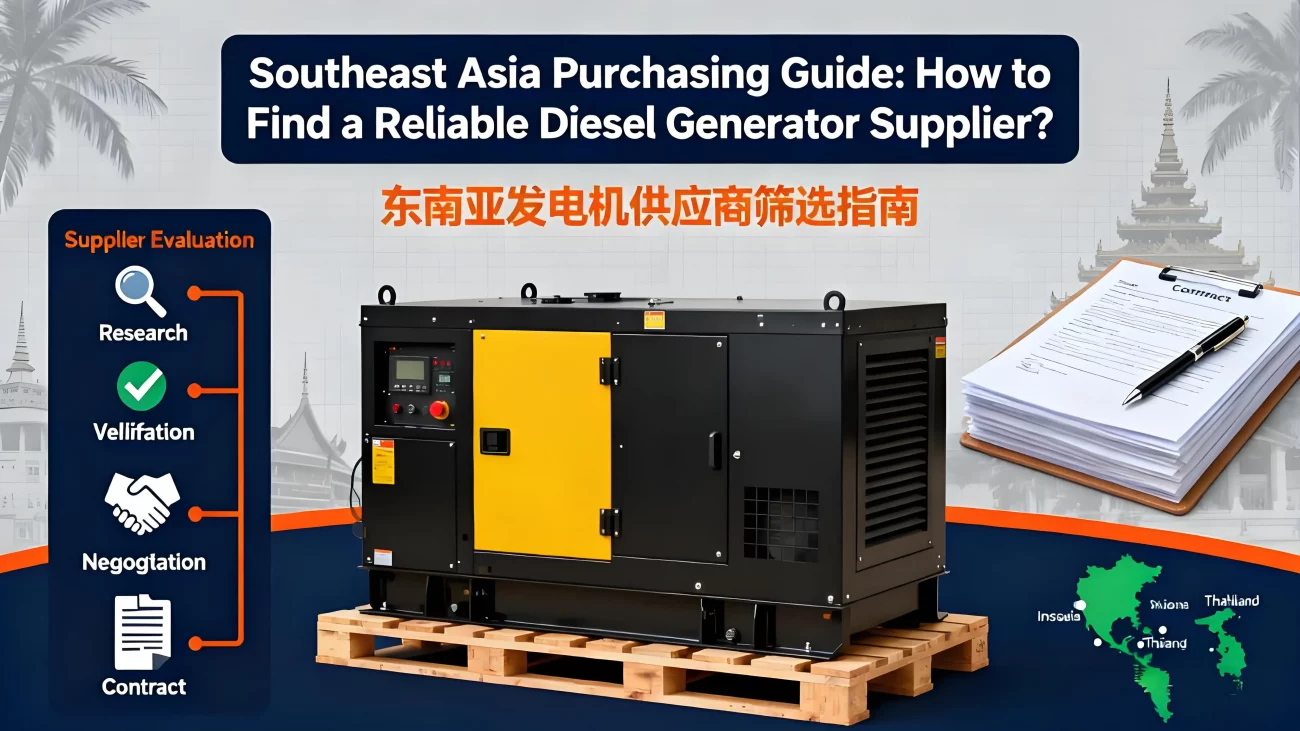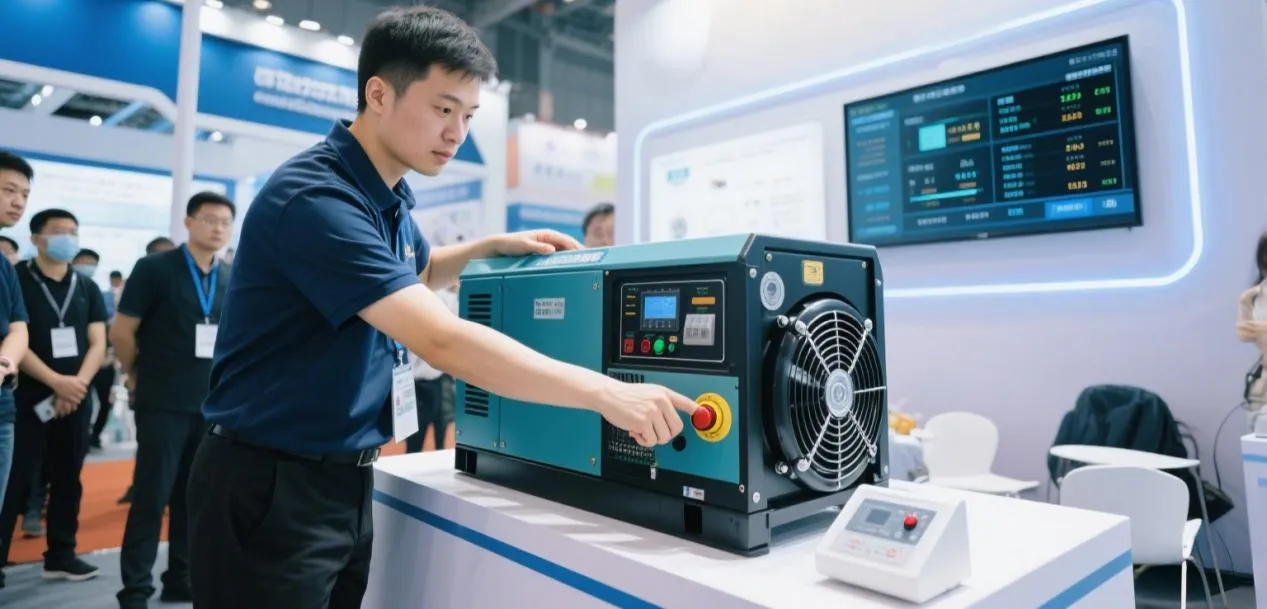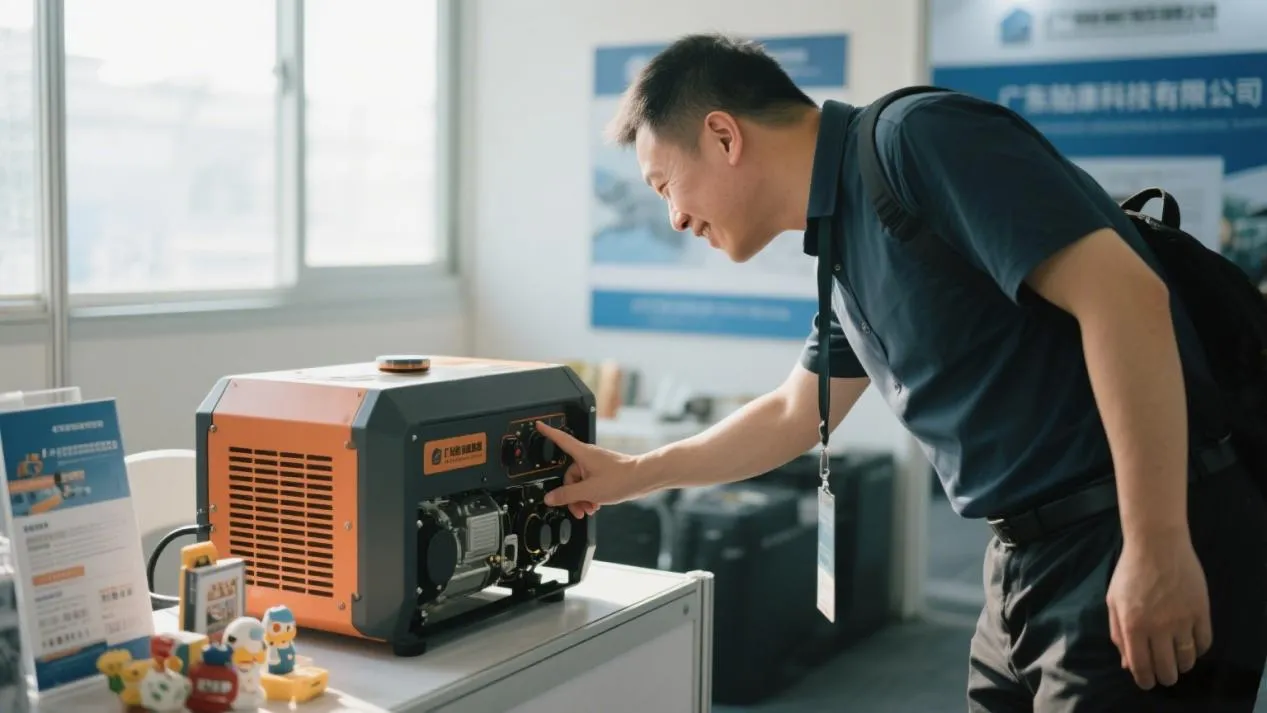Fuel Choices for Diesel Generators in Southeast Asia: Diesel vs. Biodiesel
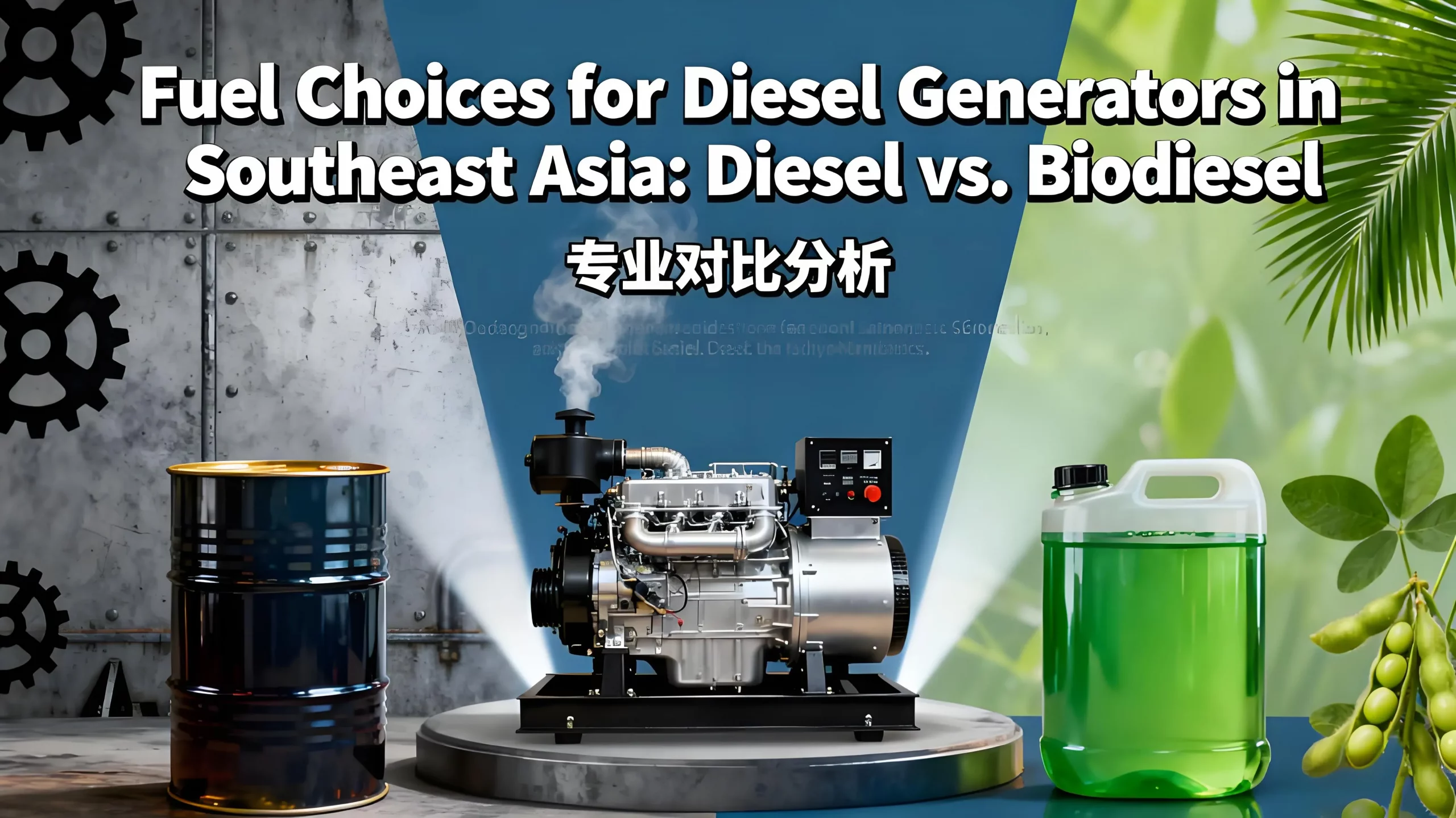
The fuel choice for diesel generators in Southeast Asia directly impacts operating costs, equipment lifespan, and environmental compliance. Due to differing fuel policies across countries (e.g., Indonesia's mandatory B30 biodiesel and Thailand's promotion of B7), many buyers face key questions: "Can my generator run on biodiesel? Which fuel is more economical and reliable?" This article compares the advantages and disadvantages of traditional diesel and biodiesel and provides local adaptation recommendations.
I. Traditional Diesel vs. Biodiesel: Key Comparisons
| Comparison items | Traditional diesel | Biodiesel (such as palm oil B20) |
|---|---|---|
| Calorific value | 35.8 MJ/L (high energy) | 33.2 MJ/L (5-10% lower, increased fuel consumption) |
| Lubricity | Fair (additives required) | Better (reduces injector wear) |
| Stability | Not easily deteriorated during long-term storage | Easily oxidized (may stratify after 6 months) |
| Environmental protection | High sulfur (restricted in some countries) | Low sulfur, reduced CO₂ emissions (in line with RPO policy) |
| Price | Higher (affected by international oil prices) | 10-30% lower (cheaper after Indonesian B30 subsidies) |
Case Study: A Malaysian palm oil mill uses B20 biodiesel, saving 18% annual fuel costs, but requires fuel system cleaning every three months.
II. Biodiesel Compatibility: Which Generators Can Use It?
1. Models with Factory Biodiesel Compatibility
- Perkins 1100 Series: Supports B20 (short-term) or B10 (long-term);
- Cummins QSL9: Supports B30 after modification;
- Chinese Brands (Weichai, Yuchai): Check the model suffix (e.g., "-BD" indicates biodiesel compatibility).
2. Usage Restrictions
- Mixture Ratio: B20 (20% biodiesel) is the upper limit for most power plants; B100 requires a dedicated engine.
- Temperature Effect: Condensation is likely at low temperatures (<15°C). Fuel tank heating is required in mountainous areas of northern Thailand/Vietnam.
III. Policies and Fuel Recommendations in Southeast Asian Countries
| Country | Current Standards | Generator Adaptation Recommendations |
|---|---|---|
| Indonesia | B30 Mandatory | Choose a corrosion-resistant fuel system (stainless steel filter) |
| Thailand | B7 Popular, B10 Pilot | Avoid long-term use of B10 or above to prevent gum clogging |
| Vietnam | Mainly uses conventional diesel | Biodiesel is only recommended for short-term emergency use (such as E5 bioethanol) |
| Philippines | No mandatory policy | Use with caution in coastal areas (high humidity accelerates biodiesel oxidation) |
IV. Three Major Risks and Solutions for Biodiesel Use
1. Fuel System Corrosion
- Problem: Biodiesel easily absorbs water, leading to microbial growth and corrosion of metal components.
- Solution: Install a water separation filter (such as the Racor 500FG) and drain accumulated water monthly.
2. Carbon and Gum Accumulation
- Problem: Long-term use of B20+ may clog fuel injectors.
- Solution: Add a fuel cleaner (such as Liqui Moly Diesel Purge) every 500 hours.
3. Difficult Cold Starts
- Problem: Biodiesel has poor fluidity at low temperatures.
- Solution: Install a fuel heater (such as a Kim Hotstart) to maintain an oil temperature >20°C.
V. Economic Analysis: When to Choose Biodiesel?
Suitable Applications:
- Countries with biodiesel subsidies, such as Indonesia and Malaysia;
- Short-term operation (<8 hours/day), avoiding long-term storage;
- Projects with high environmental requirements (such as construction sites in Singapore).
Unsuitable Applications:
- Hospitals/data centers operating 24/7;
- High-precision equipment (such as semiconductor factories) - Ultra-low sulfur diesel (ULSD) is recommended.
